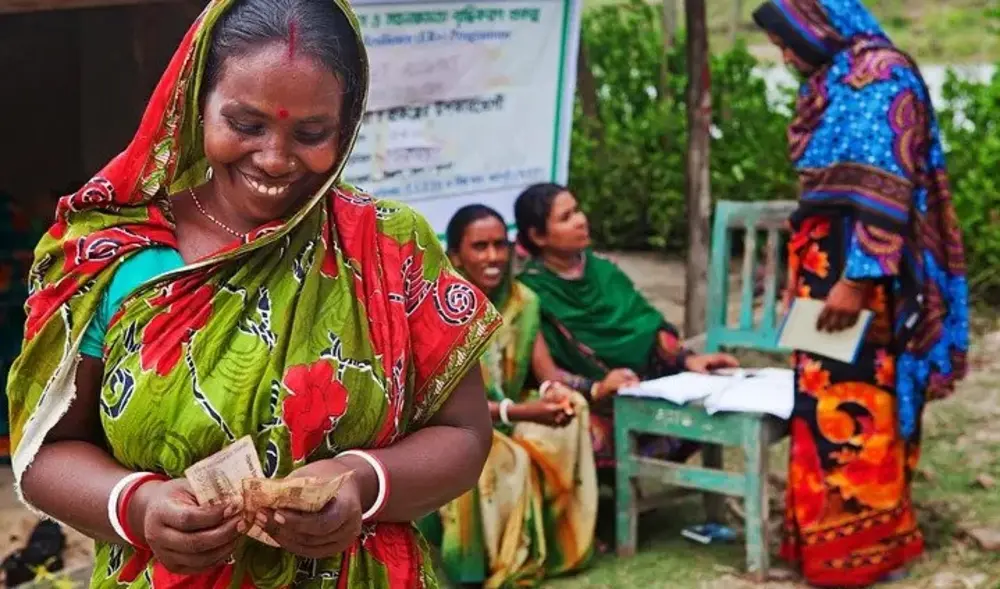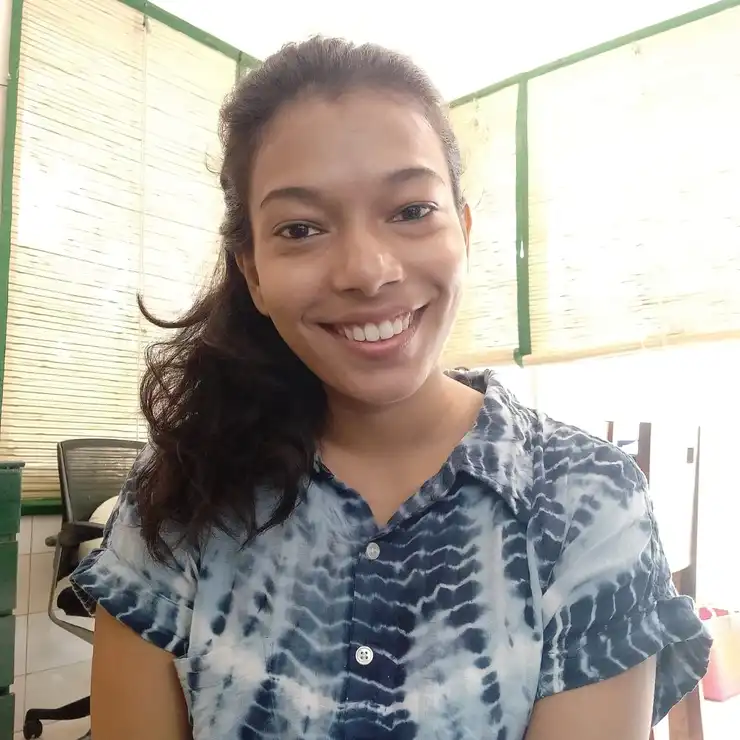Cash-Based Interventions as a Social Protection Tool for Women in Humanitarian Crises

‘In recent years, Nepal and Syria have continued to experience humanitarian crises that have prompted the governments and several donor agencies to aid those affected in the form of cash-based interventions. First-year students at the Willy Brandt School, Aditi Tyagi, Holly Warner, Su Wai Phyoe & Tracy Shimoli, take a deeper look into these interventions with a particular focus on their role in protecting women. They do this by comparing the two countries and highlighting the experiences of female beneficiaries of the cash grants and its effect on their personal autonomy and susceptibility to intimate personal violence.’
Traditionally, humanitarian assistance has been provided through the distribution of in-kind donations, such as food and clothing, to those affected. This method has however been criticised for its donor-driven nature and inability to adequately match itself to local needs, particularly when it is unsolicited (Haavisto & Kovács, 2014). Subsequently, this has led to an increase in the use of Cash-Based Interventions (CBIs) by multiple donor organizations as an alternative cost-effective tool to address a myriad of complex needs during humanitarian crises.
CBIs include conditional or unconditional cash transfers and vouchers that can be exchanged for specific items, services, or cash (ACF Food Security Service, 2006). All three categories ultimately aim to increase the purchasing power of recipients, protect their personal autonomy, and rebuild livelihoods following a humanitarian crisis. Within this context, it is important to analyse the role that these cash grants played in challenging or exacerbating the existing power dynamics that often act to the detriment of women in society.
In April 2015, Nepal was hit by a 7.8-magnitude earthquake that left over half a million individuals homeless, 9000 dead and over 22,000 injured in 31 districts (Nesbitt-Ahmed, 2017). Syria, on the other hand, is named one of the largest displacement drivers, with an estimated average of over 50 Syrian families displaced every hour of every day since the onset of the 2011 civil war (United Nations High Commissioner for Refugees, 2014). In both cases, cash-based interventions were used to assist the victims during the after-shock phases.
The delivery methods of these CBIs within Syria included door-to-door deliveries, collection via centralized locations and ‘hawala’, the informal agent-broker value transfer network system, used due to the absence of functioning banking systems. For Syrian refugees in countries such as Greece, donor agencies simplified the process by using a single bank card from a single financial provider. In Nepal, the criteria used to determine who received the cash grant was a red card issued by the government to all destroyed or severely damaged households. Additional grants were also provided to the red card holders directly through their banks. Cash for work programs by agencies that included Oxfam Nepal and International Organization for Migration (IOM) were also implemented in the early recovery phases, where participants engaged in activities such as clearing debris from the damaged buildings, afterwards being paid cash in hand.
For cash-based programmes, which are specifically targeted towards women in crises, the donor agencies must consider aspects that are unique to women as a vulnerable demographic. The delivery methods mentioned above are an example area that needed proper evaluation to avoid negative unintended consequences. Incorporation of local gender norms into the program was one such factor, as they are closely linked to women’s position in society and are therefore difficult to change (Holmes, 2019). In Nepal for example, the use of red cards as a prerequisite to cash grants automatically locked out several women from receiving direct cash as their (red card) issuance was based on household ownership, a role often reserved for men. This meant that women whose husbands were not around, were single or widowed could not access the funds because help for them was intrinsically tied to the presence of a man and particularly a husband. Another aspect for consideration is the existing social structure of the recipient community, which heavily influences the success or failure of the interventions. The more patriarchal the community is, the more likely an influx in cash for women may make them susceptible to harm. A viable strategy to curb this effect is to also include the men in the community in the programme design and rollout so that it does not create a division that further harms women.
How the delivery is made is also important because the use of banking systems, for example, may lock out many women in societies where they have limited access to formal financial institutions. On the other hand, electronic payments may help maintain the physical safety of women in vulnerable situations by protecting them from incidents, including those of sexual violence (Simon, 2019). The use of door-to-door delivery vis-à-vis collection can also be employed, as women are often the primary caregivers and so asking them to leave their duties to pick up the money may not be the best option. All these differences point to the need for careful assessment of contexts to avoid failures that can easily be resolved through understanding the inner working of the community being assisted for better outcomes.
When examining the protection effects of CBIs, empowerment and personal autonomy were key areas in which the women who received the cash grants expressed positive results. In both communities, there was a pre-existing household power imbalance, as most decisions were often made by the husband, or the father and mother-in-law in larger households. In Nepal, married women could only make these choices if the husband was either abroad or was living with a disability. The earthquake saw a slight shift in the power dynamics where some of the beneficiaries in Nepal reported that on receiving direct cash grants, decisions were made more jointly. A significant increase in women’s decision-making abilities was however reported when cash-for-work programmes were used instead. Despite the strenuous nature of the work involved, such as rubble collection, the beneficiaries declared that they had more autonomy as they collected the money they worked for. They reported feeling a sense of ownership over the money’s utilisation as they could spend it without asking for permission, a task which was sometimes difficult, particularly when buying personal effects such as cosmetics and sanitary products. Women in Syria, whose displacement worsened the already unfavourable existing power dynamics, reported that cash assistance protected them from verbal and economic abuse, humiliation, and social exclusion as it reduced their reliance on their families and neighbours for financial support. Sexual exploitation was also lessened, as the beneficiaries did not have to engage in sex for work. A reduction in the use of negative coping mechanisms which included incurring debt, begging, and skipping on the rent was also reported as the money they received covered these costs leading to increased self-esteem, confidence, and personal autonomy (Falb, Blackwell, Stennes, & Annan, 2020).
Financial dependency in relationships, especially those that are heterosexual, is one of the major instigators of intimate partner violence. Women in vulnerable situations such as humanitarian crises are no exception to the rule. CBIs have therefore been able to mitigate gender-based violence issues related to freedom, choice, and health. Among Syrian refugees in Jordan and Lebanon, early marriages of children under 19 years old are a coping mechanism for families against financial hardships. The use of multipurpose cash transfers by donor agencies provided young girls with some form of protection against forced or unwanted marriages as their families received the needed financial support (World Food Programme, 2019). On sexual and reproductive health rights, the beneficiaries were able to access, buy and use contraception, thereby decreasing early or unwanted pregnancies. These were all made possible because the women had the cash at hand and could make executive decisions on what they wanted without having to consult, especially, with the male figures in their lives. The transfers are also attributed to reducing incidences of sexual harassment and sex work as a means of sustenance in the aftermath of a humanitarian crisis (Hagen-Zanker, et al., 2017).
Studies indicate that in highly patriarchal societies, an influx of cash into the household particularly for women is more likely to stimulate partner violence (Buller, et al., 2018). This has led to an unintended consequence: cash transfers made female beneficiaries more susceptible to intimate partner violence. In the Raqqa Governorate, Syrian women reported common occurrences of such violence, which was used as a means for men to assert their power and control over their wives, whom they perceived to have taken over their roles as providers because of the cash transfers.
Despite the challenges, CBIs targeting women when tailored properly offer them a chance to get back on their feet after a crisis. In comparison to other forms of intervention such as in-kind aid, they give women a level of agency by enlarging their choice and shielding them from abuse. Donor agencies however need to adopt personalised strategies that consider the unique demands of women in humanitarian crises. Further research, which involves proper data collection, vulnerability and pre-situational analysis and milestone evaluation before and after these programs, is also essential. Additionally, governments and donors need to engage the communities and communicate clearly about the nature of the projects, and targeted beneficiaries, to avoid misunderstandings among them, thus lessening the risk of communal polarization. Donor organisations should also adopt long-term, gender-sensitive strategies in CBI programming as a donor requirement to ensure that these interventions are available to more women. With the right approach and design, CBIs can be scaled up to expand their reach as a tool for gender equality.
Cover photo courtesy of Ranak Martin and World Food Programme
For Further Reading:
ACF Food Security Service. (2006). Cash-Based Interventions. Action Against Hunger.
Buller, A. M., Peterman, A., Ranganathan, M., Bleile, A., Hidrobo, M., & Heise, L. (2018). A Mixed-Method Review of Cash Transfers and Intimate Partner Violence in Low and Middle-income Countries. Technical Report. London: London School of Hygiene and Tropical Medicine (LSHTM).
Falb, K. L., Blackwell, A. H., Stennes, J., & Annan, J. (2020, May 7). Cash assistance programming and changes over time inability to meet basic needs, food insecurity and depressive symptoms in Raqqa Governorate, Syria: Evidence from mixed methods, pre-posttest. PloS one.
Haavisto, I., & Kovács, G. (2014). Perspectives on Sustainability in Humanitarian Supply Chains. Disaster Prevention and Management, 610-631.
Hagen-Zanker, J., Pellerano, L., Bastagli, F., Harman, L., Barca, V., & Sturge, G. (2017). The impact of cash transfers on women and girls. A summary of the evidence. ODI.
Holmes, R. (2019). Promoting gender equality and women's empowerment in shock-sensitive social protection. ODI.
Nesbitt-Ahmed, Z. (2017). Emergency cash transfers and women's economic empowerment in post-earthquake Nepa. IIED Working Paper.
Simon, C. A. (2019). The Effect of Cash-Based Interventions on Gender Outcomes in Development and Humanitarian Settings. UN Women.
United Nations High Commissioner for Refugees. (2014). Global trends: forced displacement in 2014.
World Food Programme. (2019). The potential of cash-based interventions to promote gender equality and women’s empowerment. A multi-country study. WFP.

About the author
Aditi Tyagi, a first-year student at the Brandt School, originates from Pondicherry, India. She has earned a Bachelor's degree in International Relations and Development Studies and has valuable work experience in both private and government organizations related to education and animal welfare.

Holly Warner is a first-year student at the Brandt School. She is originally from Ohio in the United States and has a B.A. in Political Science and French from Boston University. She has held roles at the OECD and United Nations Foundation, and she currently works for a philanthropy consulting firm, Black Fox Philanthropy.

Su Wai Phyoe is a Master's candidate in public policy at Willy Brandt School. She has worked for Myanmar institutional reforms since 2017. She is also a legislative and governance fellow with the US State Department and the American Council of Young Political Leaders. She is interested in local governance reforms.

Tracy Shimoli is a first-year student at the Willy Brandt School. She comes from Kenya with a B.A. in International Relations and Security Studies and work experience in the investment promotion field. Her interests are in gender justice and advocacy.
~ The views represented in this blog post do not necessarily represent those of the Brandt School. ~